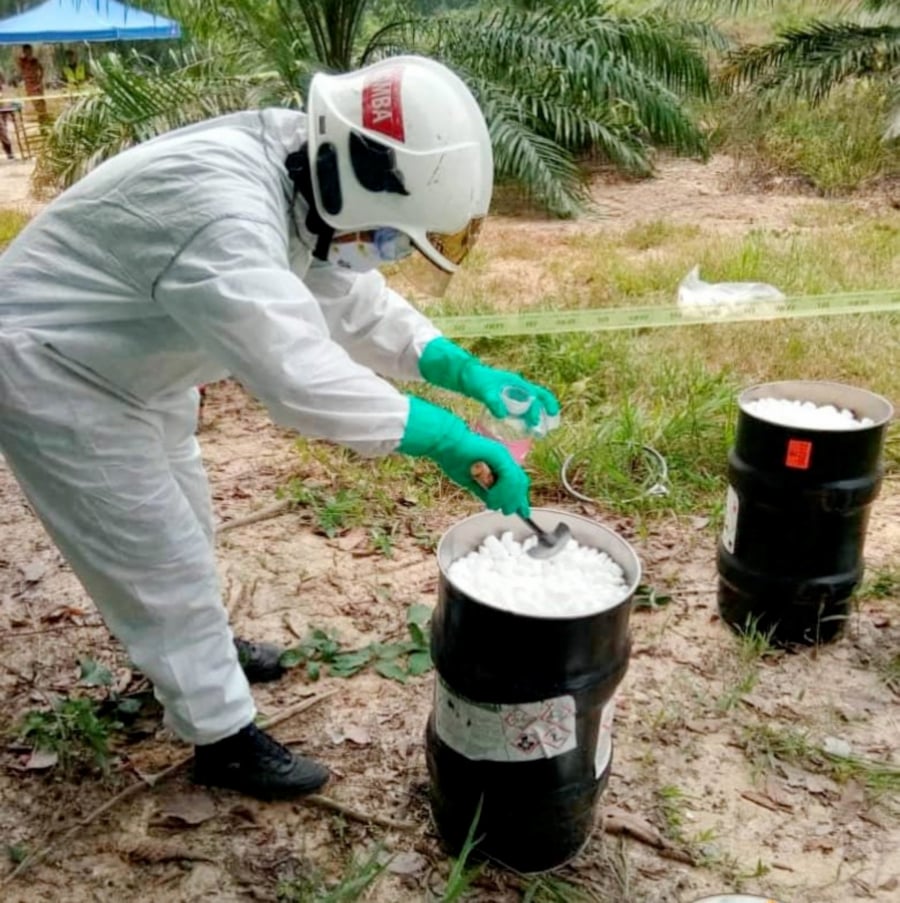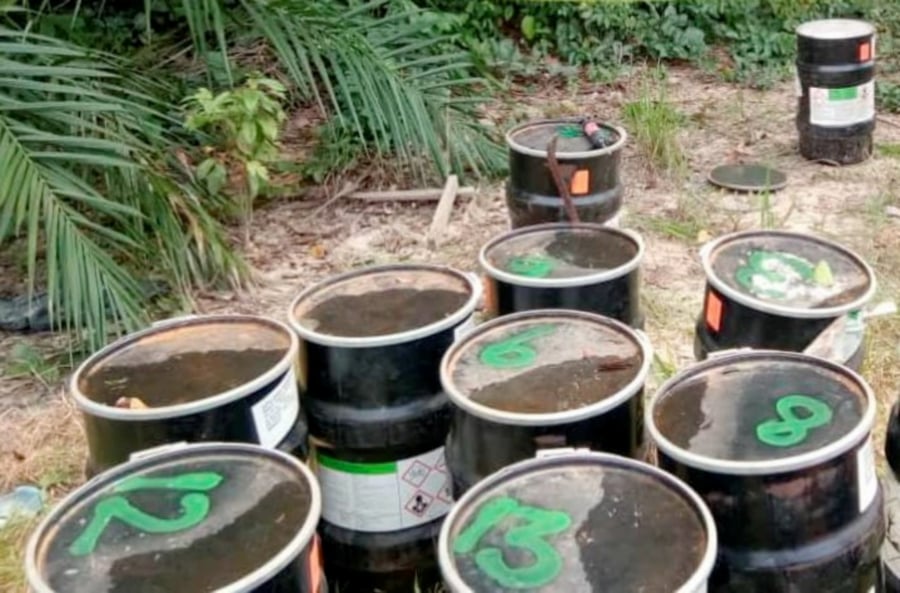KUANTAN: The 15 barrels containing solid sodium cyanide, found in Karak near Bentong on Aug 1, could have been stolen from elsewhere before being abandoned at the oil palm plantation.
Pahang police chief Datuk Abdul Jalil Hassan said the department was not ruling out the possibility that the chemical barrels were left at the site after the thieves failed to find buyers.
"The suspects might have stolen the chemicals from elsewhere before trying to sell it to potential buyers. When there were no buyers, they decided to dispose the barrels at the oil palm plantation or left it temporarily at the plantation.
"Since the solid sodium cyanide barrels were not stored and handled properly, the chemicals may have leaked. Policemen were the first to arrive at the scene and they might have come in contact with it," he told reporters here today.
Abdul Jalil said the Bentong district police headquarters were investigating how the chemical ended up in the plantation and are trying to track down those involved.

Meanwhile, it is learnt that two policemen who were warded in Bentong Hospital have been allowed to return home today. All eight policemen have been given extra break days to ensure they fully recover before returning to duty.
It was reported that eight policemen had complained of illness following the discovery of the barrels. Four received outpatient treatment at the Karak Health Clinic while four others were warded at the Bentong Hospital.
On Aug 1, members of the public alerted the authorities after they discovered the barrels containing chemicals among some oil palm trees in Karak.
Meanwhile, Pahang Tourism, Environment, Plantations and Biotechnology Committee chairman Datuk Seri Mohd Sharkar Shamsuddin, in a statement, said an experienced contractor was hired to safely move the chemicals to a safe location before disposing it.
He said the operation was carried out on Aug 4 under supervision of the state Department of Environment (DoE), Fire and Rescue Department, police and Bentong District and Land Office representatives.
"There were no spillages or leakages reported during the transfer. All the barrels were closed and firmly covered from the day they were found until removed from the site.
“Once the transfer process was completed, the Fire and Rescue Department's hazardous materials (Hazmat) team monitored air readings at the oil palm plantation where the chemicals were found and confirmed there was no presence of cyanide gas vapour in the area,” said Sharkar, who is also the state Monitoring and Disposal of Hazardous Waste Committee chairman.





